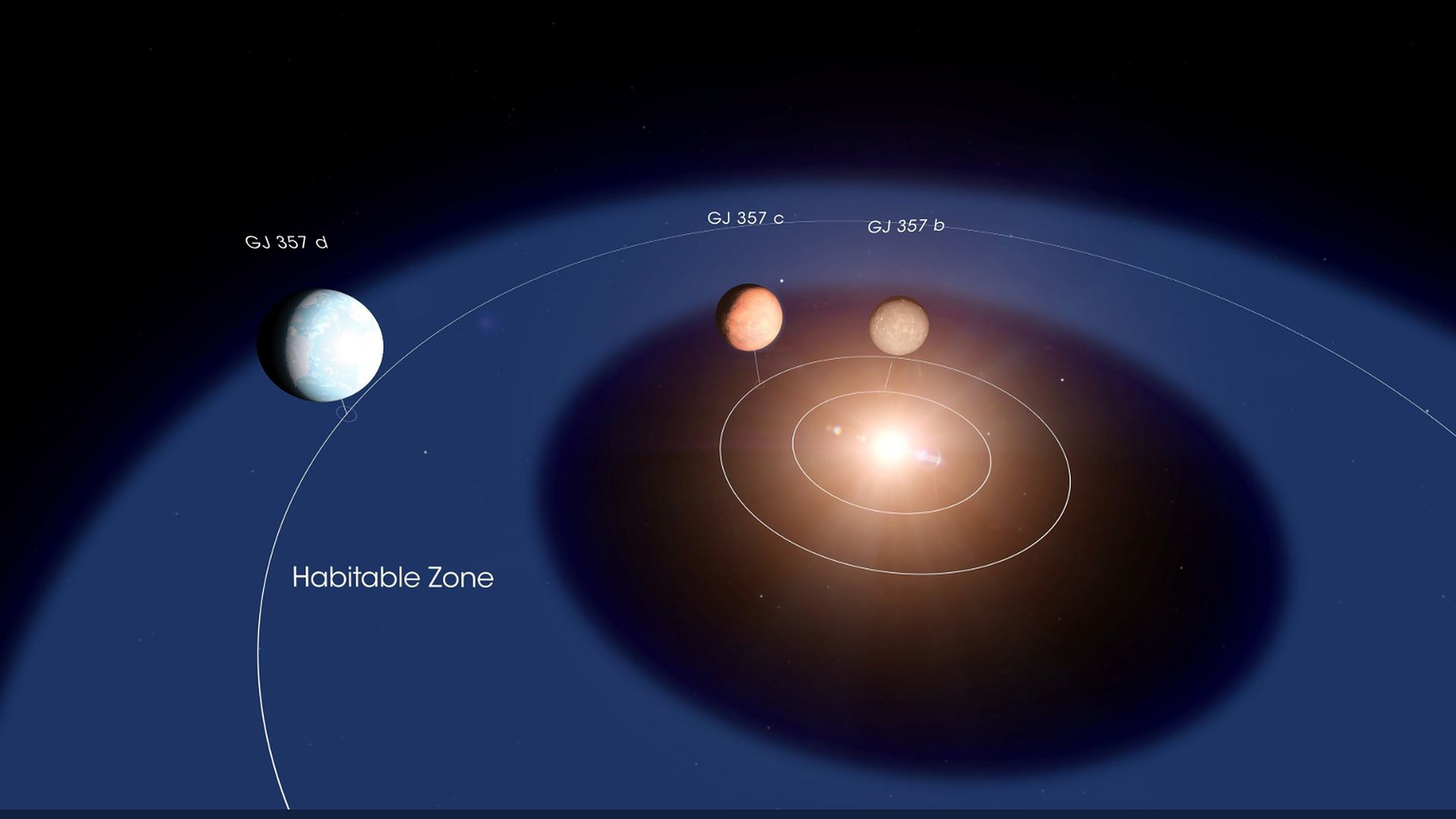
NASA announced Wednesday that its Transiting Exoplanet Survey Satellite (TESS) has uncovered a potentially habitable planet just 31 light-years away from our solar system.
Why it matters: TESS member and associate professor of astronomy Lisa Kaltenegger, who led the international team and who is also director of Cornell's Carl Sagan Institute, said in a statement the discovery of the exoplanet, named GJ 357 d, "is humanity's first nearby super-Earth that could harbor life."
The big picture: Astronomers from the Institute of Astrophysics of the Canary Islands and the University of La Laguna, Spain, published the findings on the GJ 357 system in the journal Astronomy & Astrophysics, and they were presented at an exoplanet conference in Cambridge, Massachusetts, on Wednesday.
- The astronomers detected via TESS another planet orbiting the same star, named GJ 357, and deeper research by Spanish astronomers led to the discovery of 2 more planets in the system — including the super-Earth, GJ 357 d, which takes almost 56 days to orbit its host star at a distance roughly one-fifth of that between Earth and the sun.
- The other 2 known planets in the star system, GJ 357 b and GJ 357 c, are believed to be far too hot to be habitable, according to Kaltenegger.
What's next? Kaltenegger said a pair of next-generation telescopes in Chile should reveal more details once operating in 2025 about the super-Earth, including whether it is rocky or has oceans, per NBC News.
Go deeper: What scientists look for to tell if an exoplanet is habitable
https://www.axios.com/super-earth-31-light-years-away-may-support-life-d1d0298d-3c82-4f99-a4af-22774fc1ed70.html
2019-08-01 07:20:00Z
52780342454734
Tidak ada komentar:
Posting Komentar